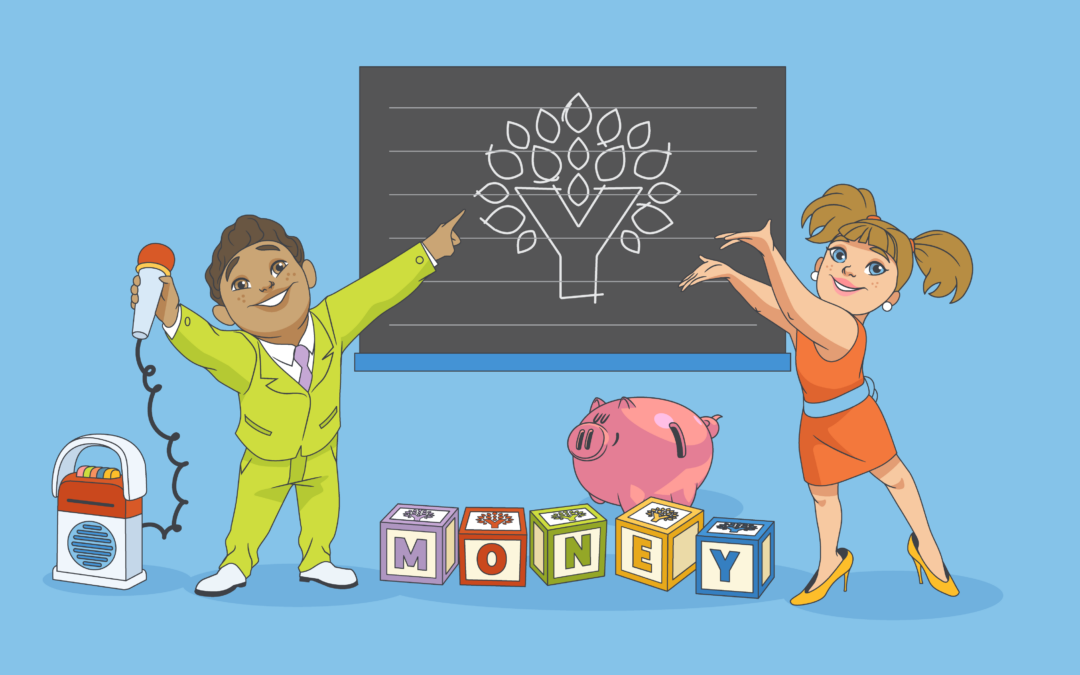Download our free printable chore chart and budget workbook for kids below!
Having your kids do chores can be a lot like hiring Amelia Bedelia but with a bad attitude—at best, it can be more of a hindrance than a help, and at worst, it’s lowkey psychological warfare.
(That might sound dramatic, but I have teenagers. I know.)
We could all use a little help around the house, but when that help complains, needs regular reminders, or simply doesn’t know that liquid dish soap doesn’t actually go in the dishwasher, it often seems like more trouble than it’s worth. However, part of parenting is raising capable adults. Chores instill a sense of responsibility, promote independence, and tying work to an allowance is a great way to teach kids to earn, spend, and save.
To Pay or Not to Pay?
There are some things in life that we just have to do, whether we want to or not. (It’s my least favorite part of being a human, to be honest.) Part of deciding to implement an allowance involves deciding what you’re willing to pay for.
A good litmus test might be to ask yourself if this is part of a daily routine or is it a household chore? Things like brushing your teeth, washing your hands, cleaning out your backpack, doing homework, or putting your shoes away might just be normal expectations for life.
You could still include daily tasks on a responsibility chart as an accountability method (and because who doesn’t love getting stickers or checking a box?) but it’s especially important to teach younger kids that there are things that need to be done that you don’t get a monetary reward for doing.
Age-Appropriate Chores
An important part of setting everyone up for success as you create and implement a chore system is to make sure you’re choosing household chores that are age appropriate. It (hopefully) goes without saying that your preschooler probably isn’t the best candidate for cleaning the ceiling fans, but choose chores that are safe and offer a good mix of easy wins and slightly more challenging tasks. Chores serve double duty as also being a great way to practice motor skills, critical thinking, and executive function.
Here are some age-appropriate daily chore ideas that you can include on your weekly chore chart.
Preschoolers
- Pick up toys
- Set the table
- Feed pets
- Put forks and spoons in silverware drawer
- Help wipe up spills or crumbs
- Take dishes to the sink
- Help put away groceries
- Wash produce
- Put clothes in the hamper
- Match socks while putting laundry away
- Wipe down the kitchen table
- Put their shoes, coat, or backpack away
- Water plants
5 to 7-year-olds
- Make their bed
- Clean bathroom mirrors
- Empty bathroom garbage cans
- Rinse off plates
- Unload dishwasher
- Dust furniture
- Sweep floors/use Swiffer
- Switch laundry from washer to dryer
- Remove clothes from dryer
- Fold towels
- Wipe counters/surfaces
- Hang clothes
- Wipe baseboards
- Put away laundry
8 to 10-year-olds
- Make their own lunch
- Get the mail
- Vacuum
- Clean out/wash the car
- Wash windows
- Take out the trash
- Load and unload dishwasher
- Mop floors
- Clean bathroom sinks/toilet
- Help younger siblings
- Walk/clean up after dog
- Wash dog
- Pulling weeds
Tweens and teens can do just about anything (don’t let them try to tell you otherwise) and it’s important for older kids to learn that independence comes with responsibility.
The Reward System
Money talks, at all ages. Although helping around the house is ideally just part of your family culture, allowance is not only a great motivator, but also the perfect way to introduce kids to the concept of financial literacy.
Decide how you’ll pay:
- Per chore?
- A set amount per week?
- Based on age?
Will your kids be allowed to spend the money however they want? Will they have to save or donate a portion of their earnings? These are all things to consider!
If you decide not to offer an allowance, you could create a point system for each chore and allow children to work towards a special outing or treat. Or you could go with a good old-fashioned gold star on a family chore chart. Recognition is always nice, in any form.
Chore Charts for Kids
A publicly-displayed chore checklist can serve as a reminder, a motivator, and a source of accountability. You have several options here: you can go all DIY with some poster board, you can put a whiteboard and dry erase markers to good use, you can search the internet for a free chore chart to print and laminate, or you can have kids save a PDF editable chore chart to their laptops or tablets.
Free Printable Chore Chart and Budget Workbook
Or you could just download our printable chore chart and budget workbook for kids and call it a day on the good parenting front. Here’s a sneak peek:



Our printable chore chart template includes sections for:
- Daily responsibilities (perfect for those unpaid-but-important tasks) with a weekly performance review section.
- Paid chores with a space for the dollar value you assign to each
- Money Makers for additional opportunities to earn some cash
- A notes section for reminders, jokes, or motivational quotes
- Total weekly earnings
Our included budget worksheets for kids include:
- A monthly budget with sections to allocate money for spending, saving, and giving
- A spending register to record purchases and track remaining balance
- A savings total section
- A giving register to record charitable donations
- A wish farm coloring page to encourage saving for larger purchases
We’ve created two versions: A colorful printable chore chart and budget workbook and a black and white version that doubles as a coloring book!
Printable Chore Chart and Budget Workbook
Chore Chart and Budget Workbook (Coloring Pages)
Ironically, getting help around the house can be a lot of work. However, the opportunity to teach responsibility, encourage independence, and introduce financial literacy is invaluable—and you’ll get some help getting the dishes done too.
For more information about teaching budgeting for kids, check out our Money for Minis video series. And if you haven’t started your own budget, try YNAB’s 34-day trial for free.
Try YNAB for Free!











